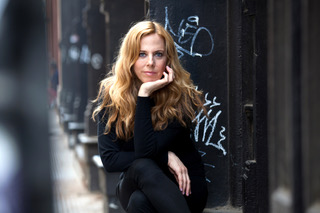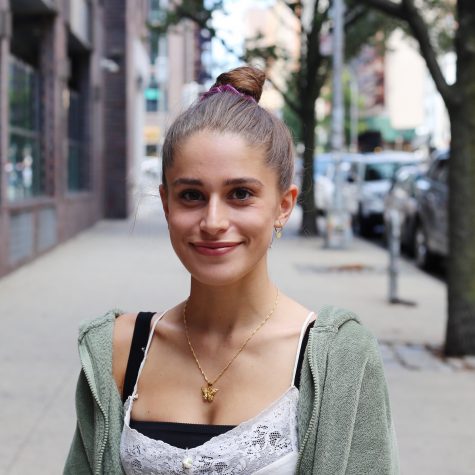In her new collection “Soft Targets,” acclaimed poet and director of NYU’s Creative Writing Program Deborah Landau looks at the world’s problems and asks, “What do we do about this?” While her past works deal principally with the vulnerability of the female body, “Soft Targets” extends from the individual to the political body to the “the global body / its infinite permutable softnesses.” Rather than offer a panacean way out of the chaos, she makes small suggestions, rendering the ordinary experiences of life miraculous, so we might see the miracle in them like she does.
The book began as “a response to what was in my face,” Landau told WSN. She was in Paris with NYU’s MFA program during the 2015 terror attacks. Landau said she was “celebrating Bastille Day out on the river, watching the fireworks — then, it’s on our phones, this guy had driven his truck into the crowds at Nice and everything changed; you find out right away.” The intensity of that experience moved her to write the poems that would come to comprise “Soft Targets.” She said she never thought she would write an overtly political book, but “reality became overwhelming.”
She describes Paris as a site of pure joie de vivre, rendering the terrible attacks that occurred there all the more world-altering and unsettling. “It’s gorgeous and there’s wine by the river and there’s people in the streets,” she said. “But then people were in the cafes and they all got shot.”
Everything occurs in what she calls “mad simultaneity,” as “one person is mauled, / another eats a sandwich.”
“I read this wonderful book called ‘The White Hotel’ which has had a huge impact on me because it’s all about this,” she said. “The main character asks at one point ‘How can you ever be happy when at every moment the most horrible thing is happening elsewhere to someone else?’ It’s really perplexing.”
She said it can be difficult to read these poems for an audience on account of their lugubriousness. She describes an event hosted by the Los Angeles Times at which she was invited to read.
“It was a gorgeous day,” she said. “The guy right before me was reading these poems about sex with young women and the audience was loving it because they were sexy and funny. So I was like, oh, here I am with poems about death and terror. But then I didn’t apologize. This is what feels true to me.”
Landau says she doesn’t have a desire to write fiction. “I like to read fiction but I don’t think I’m a storyteller,” she said. “I don’t think I can sustain a narrative like that. I like poetry because it’s elliptical, associative; you don’t need to tell everything.”
Still, there is a sense of narrative in her poems, as we follow her through generations of mothers and daughters. The book spans lifetimes, from the youth of her grandmother, taken by Nazis in 1938, to the birth of her own daughter, “bare and guileless, fair and free, / funneling forward without a helmet.” This anxiety about childbearing returns Landau to her meditations on the female body, as she writes, “Such a reckless act, to pop out a human / with the jaws of the world set to kill.”
These poems are concerned not only with how to exist ourselves, but how to cope with the awareness of the kind of world which we have left our children to inherit.
“My seven-year-old daughter overheard us talking about climate change the other day,” Landau said, shaking her head. “We didn’t know she was listening. She was so upset. She was like ‘The beaches are gonna disappear.’”
The poems largely meditate on the state of the world rather than directly condemn the players within it. This is not to say, however, that these poems are without rage, especially toward those in positions of unnerving power within the government. “Our kings are cranks, crooks, incongruous,” she writes, “they are improper, ill equipped / how is it we pushed the handle down and they popped out?”
Even amid the terror, however, Landau expresses loving attention to what persists, as “still there was bread on the plate, still wine.” Nature, in particular, sprouts up in spite of itself — “much trouble at hand, yet the lilies still.”
There is a persevering fondness for the small things that keep us sane, if only for a moment. “Eat Drink Breathe / and Kiss your favorite face,” she writes; and later, “O beautiful habit of living, let me dwell on you awhile.” If there cannot be redemption, there can be survival. “We carried on with our breathing—” she writes, “my father was still alive, my body kept aging, / the pills helped a little, not a lot.”
“I don’t feel better having written it all,” she said. “I probably feel worse. I was talking to someone else who’d written on the general same subject and she also feels horrible. But at least we got some poems out of it and maybe the poems are a way to press back.”
A version of this article appeared in the Monday, May 6, 2019, print edition. Email Julie Goldberg at [email protected].
























































































































































